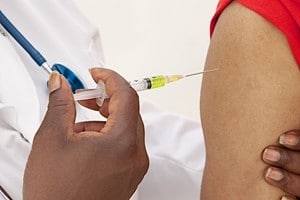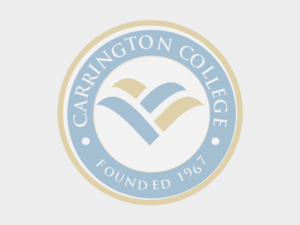 A recent Canadian study may be an important cue for American health care officials to invest pharmacy technology resources developing more affordable and accessible HPV vaccines for young men as well as women. The research, which was published in Cancer, a journal by the American Cancer Society, found that providing the HPV vaccine for boys age 12 is effective in preventing throat cancer in the future.1 While vaccination is becoming more popular for boys, there’s still low general awareness of HPV and the potential cancers it can cause. However, HPV is one of the most common sexually transmitted infections and has long been linked to cervical cancer in women. Some express concern that there are implications with giving this vaccine to boys and girls at age 11 or 12 and that it may encourage sexual activity. However, the new study suggests the benefits are monumental and can contribute to someday eliminating the disease from the general population.
A recent Canadian study may be an important cue for American health care officials to invest pharmacy technology resources developing more affordable and accessible HPV vaccines for young men as well as women. The research, which was published in Cancer, a journal by the American Cancer Society, found that providing the HPV vaccine for boys age 12 is effective in preventing throat cancer in the future.1 While vaccination is becoming more popular for boys, there’s still low general awareness of HPV and the potential cancers it can cause. However, HPV is one of the most common sexually transmitted infections and has long been linked to cervical cancer in women. Some express concern that there are implications with giving this vaccine to boys and girls at age 11 or 12 and that it may encourage sexual activity. However, the new study suggests the benefits are monumental and can contribute to someday eliminating the disease from the general population.
Research and Findings
HPV has been linked to several types of cancer in men, specifically anal, penile and throat cancer. The research utilized data from 16 studies to analyze how the HPV vaccine was accepted in more than 5,000 people, as well what factors contributed to boys receiving the vaccine. One main concern the researchers had is that the vaccine is relatively new, and that a combination of misinformation and fear cause many people to avoid receiving it. Yet, more widespread vaccination ultimately will result in a better protected community, the researchers found.1 “The idea of an HPV vaccine for boys is new in Canada and so far it has had a low adoption rate,” said Professor Peter A. Newman, Canada Research Chair in Health and Social Justice, in a University of Toronto news release regarding past research. “So we need physicians, social workers and public health care institutions to be more active conveying the benefits of the vaccine for boys and the positive role it can help play keeping Canadians safe and healthy.”2 “We believe this study is important because HPV-related oropharyngeal cancer has increased significantly in incidence, especially in developed countries,” said Dr. Donna Graham, a researcher who has led a study on HPV vacinnation in men, in a press release. “It is projected that by 2020, HPV-related oropharyngeal cancer will become the most common HPV-related cancer in the US, surpassing cervical cancer.”3
Preventing HPV
As the value of vaccinating boys becomes more widespread knowledge, ideally more countries across the world will invest to include the vaccine in immunization programs. Unfortunately, for the time being this virus results in cancers that would not otherwise occur. According to the U.S. Centers for Disease Control and Prevention, the only guaranteed method for preventing HPV is abstinence.4 However, condoms, when used regularly, can also help lower general risk of contracting the virus. Vaccines are designed to protect people against the majority of strains of HPV, including the viruses that cause genital warts. Currently, the only cancer related to HPV for which there is a screening is cervical cancer, which is one of the reasons it has been traditionally challenging to identify the disease in men. Moreover, cancer caused by HPV can occur decades after a person is infected with the virus.
1 http://onlinelibrary.wiley.com/journal/10.1002/(ISSN)1097-0142
2 “Vaccinating young boys is key in preventing HPV,” by Michael Kennedy, University of Toronto News, July 22, 2013. http://www.news.utoronto.ca/vaccinating-young-boys-key-preventing-hpv
3 “HPV Vaccination of Adolescent Boys May Be Cost-Effective for Preventing Oropharyngeal Cancer,” Press Release, Wiley, April 13, 2015. http://www.wiley.com/WileyCDA/PressRelease/pressReleaseId-117402.html
4 “How can people prevent HPV,” U.S. Centers for Disease Control and Prevention, January 22, 2015. http://www.cdc.gov/hpv/prevention.html



